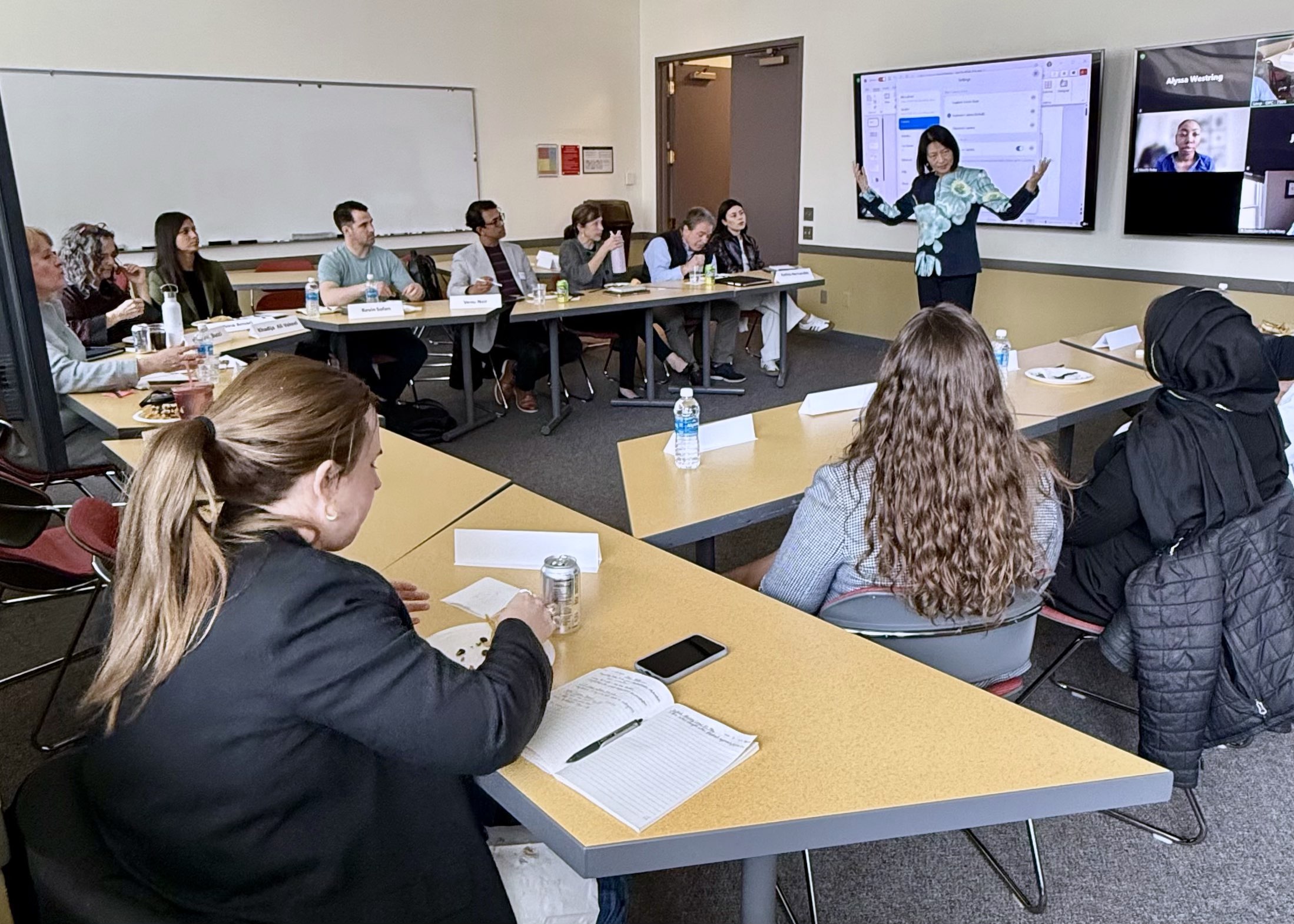
A new advisory council will directly connect management and entrepreneurship faculty and students to leaders across multiple industries, ensuring that a Driehaus education is attuned to a rapidly changing market.
For many advisory council members, the opportunity is an extension of the work they’ve already been doing with DePaul.
“They’ve been mentors to our students; they’ve advised our programs. In some cases, they’ve taught our classes,” said Alyssa Westring, chair of the Department of Management and Entrepreneurship. “This is just adding a new layer to their involvement.”
From entrepreneurs to top companies, a wide range of connections
The council includes everyone from recent alumni to senior leaders; from entrepreneurs to executives. It spans across multiple in-demand fields, including data analytics, supply chain, and sustainability.
Advisory board member Amy Amaon, now a sustainability manager at Health Care Service Corporation, is a recent graduate of the department’s master's program in sustainability. She arrived at DePaul as an engineer seeking a career change to a more meaningful, impactful field.
“I knew that I had the math skills. But I wanted to understand what you need to do to implement sustainability," she said. “DePaul had exactly what I was looking for.
Amaon and other alumni on the council were drawn to the opportunity to give back to an institution they care about.
“DePaul, being a Vincentian organization, brings such a unique, values-based perspective,” said board member John K. Thompson, a Senior Vice President at The Hackett Group who is currently overseeing its efforts to build out new AI Products and Services for enterprise class organizations.
“I learned a lot in my MBA about marketing,” he said. “But through liberal studies electives, I also learned about philosophy, about metaphysics, and about the human condition. The educational experience I had at DePaul probably couldn't have been had anywhere else.”
An industry-aligned business education
Westring and Council Chair Monica Marcel, a social impact entrepreneur and founder who now advises a wide range of executives and businesses, hope that the council can be part of transforming a DePaul management and entrepreneurship education into an even more hands-on experience directly shaped by the changing needs of businesses today.
“We want to make sure that when students leave DePaul, the time and effort they’ve spent positions them to succeed in the field they’ve chosen,” said Marcel.
That work will start, said Westring, by pairing up each of the department’s four M.S. programs with multiple dedicated advisory board members. This gives programs a point of entry to multiple professional networks that can advise faculty on industry needs and connect students to invaluable hands-on opportunities.
When Amaon thinks about her field of sustainability, she sees an especially pressing need for graduates to have practical experience.
“Learning on the job is great – but in these highly competitive fields, you can’t count on it,” she said. “How do you equip people so that, not only do they know the theory, but they can walk the walk?”
A win-win situation: for students, for companies, and for the City of Chicago
The department already integrates a wide range of practical projects into its courses. Students in the business analytics master’s program offer data-driven insights to one of the country’s largest food and beverage distributors as part of their capstone project. Last quarter, MBA students partnered with the Chicago Transit Authority to envision how entrepreneurship can be harnessed to help revitalize communities.
One of the foremost goals of the advisory council is expanding on this pre-existing work, benefitting companies in the process.
“We want this to be a win-win,” said Marcel. “The students win, the university wins, and the company wins. Whatever kind of business you’re in, we invite you to think about how some bright, brilliant students, and their bright, brilliant faculty, could be useful to you.
At the end of the day, Marcel added, those benefits also redound to the city of Chicago as a whole: to the business ecosystems DePaul is connected to and the communities students come from.
“Chicago is the city I call home,” she said, “and it deserves all of us coordinating to ensure Chicago benefits from our efforts.”